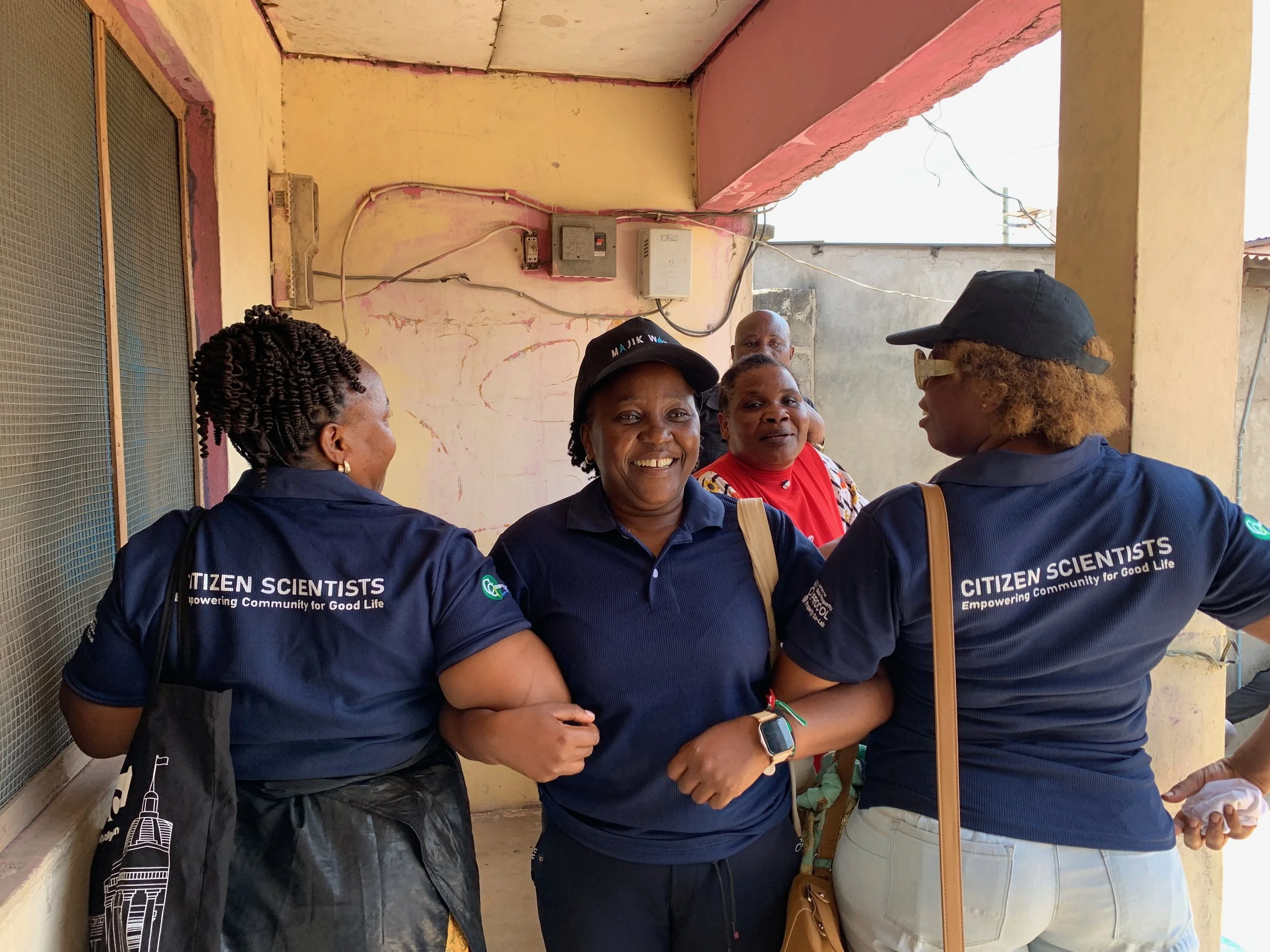Maisha Bora Index
The Maisha Bora (‘Good Life’) Study is an innovative, community-led research project exploring what prosperity means to people living in three unplanned settlements in Dar es Salaam, Tanzania.
About the Maisha Bora Index
The Maisha Bora Index is Africa’s first citizen-led prosperity measure, co-designed over five years with citizen scientists, community members, community leaders and government officials, and launched in partnership with the Centre for Community Initiatives (CCI).
Led by IGP researchers Dr Saffron Woodcraft and Festo Makoba, the Maisha Bora (‘Good Life’) Study explored what prosperity means to people living in three unplanned settlements in Dar es Salaam, Tanzania – Mji Mpya, Bonde la Mpunga, and Keko Machungwa. The research has been carried out by a team of citizen scientists – people who live and work in the three settlements – trained by the UCL Citizen Science Academy and employed by CCI.
The goal of the research is to develop new ways of understanding and measuring prosperity that reflect peoples’ lived experiences and what supports and what prevents people from living good lives. Residents, community leaders, and NGOs are using the findings to identify priorities for action, develop community led interventions, and to work with municipal and city officials and public agencies to change policymaking.
Methodology
The Maisha Bora Index (MBI) provides an innovative approach for assessing prosperity in unplanned settlements of Dar es Salaam, Tanzania. Moving beyond traditional economic indicators, the MBI integrates a multidimensional framework based on the lived experiences and aspirations of residents. It incorporates economic security, social cohesion, environmental sustainability, and governance dimensions to provide a holistic understanding of prosperity.
It builds upon the Citizen Prosperity Index (CPI) methodology developed in east London by the IGP, adapting its framework to the realities of unplanned settlements in Dar es Salaam, Tanzania.
Key findings
The Maisha Bora Index data reveals shared strengths and challenges across the settlements and unique patterns within each community:
Livelihood security presents the most severe crosscutting challenge, showing through unstable income patterns, high informal employment rates, and significant gender disparities in economic participation.
Settlement access and infrastructure limitations present fundamental challenges, with significant variations between settlements, pointing to systemic inequalities.
High scores for belonging in all settlements indicate remarkably strong social cohesion that transcends economic disparities.
The three settlements exhibit distinct patterns of prosperity influenced by their unique demographic and economic characteristics.
The context-specific dynamics reveal how prosperity emerges from complex interactions between social, economic, and physical infrastructure.
Scaling up the Maisha Bora Index
The Maisha Bora Index provides new, place-based evidence for policymakers to tackle poverty and inequality on the ground. Scaling it across Tanzania will strengthen inclusive and responsive governance systems.
In our policy brief we put forward a roadmap for scaling up at the national level, including pilot testing across rural and urban areas in Tanzania, designing a flexible Index model with five core domains, extended citizen science training and institutional integration.
Resources
Working Paper
Developing the Maisha Bora Index
Saffron Woodcraft, Nikolaos Tzivanakis, Henrietta Moore, Georgios Melios
Article
Empowering communities through citizen science: Redefining prosperity in Tanzania
Festo Makoba, Joseph Cook and Saffron Woodcraft
About the Study
Empowering communities to define, measure, and take action on creating a good life in Dar es Salaam, Tanzania (English and Swahili)
Saffron Woodcraft, Festo Dominic Makoba
Blog
Redefining Prosperity in African Cities: The Launch of the Maisha Bora Index
Henrietta Moore
Working Paper
Redefining prosperity with and for communities in Dar es Salaam, Tanzania
Saffron Woodcraft, Nikolaos Tzivanakis, Festo Makoba Tim Ndezi
Policy Brief
Scaling-up the Maisha Bora Index



